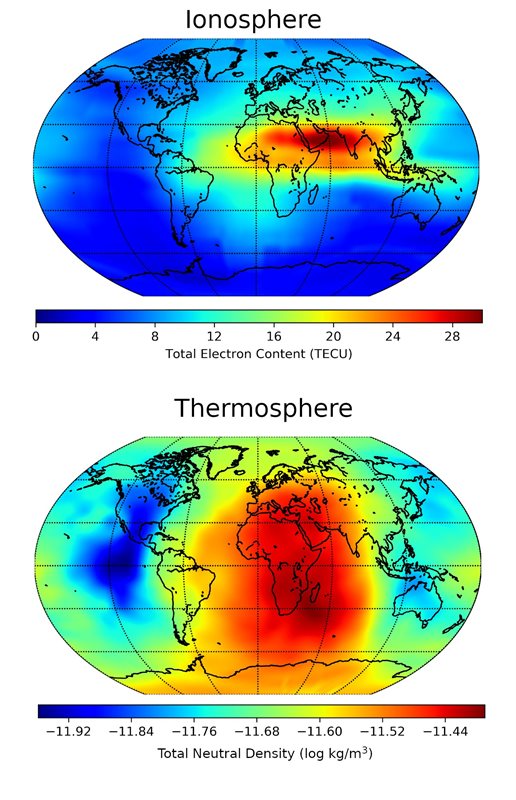Understanding the near-Earth space environment is of crucial importance to modern society. This complex, and rapidly evolving, region of the Earth’s upper atmosphere impacts a wide range of technologies including GPS, HF radar, low frequency astronomy and the orbit of satellites. Cutting edge research by the group enables planning and mitigation of these impacts as well as providing tools to help policy makers and governments make informed decisions about space weather related impacts.
The primary research focus of SERENE is the development of the Advanced Ensemble electron density (Ne) Assimilation System (AENeAS). AENeAS is an operational first-principles data assimilation model of the Earth’s ionosphere and thermosphere. It uses state-of-the-art mathematical techniques and tens of thousands of observations distributed all over Earth to make accurate and actionable space weather forecasts in real time.

The group’s research also investigates long-term likelihoods of extreme space weather events. Since 2012 space weather has been on the UK National Risk Register (as well as on many other nations risk registers) and understanding the probability of a solar superstorm is required for suitable planning. The group uses statistical methods and tools to make mathematically rigorous estimates for the associated risks and provide this advice directly into the UK Government.
The challenges posed by the space environment are wide reaching and SERENE was founded with support from the Defence Science and Technology Laboratory (Dstl) and the Royal Academy of Engineering to develop and grow UK capability in this area. The group aims to bridge the gap between academia and industry and has strong links with Dstl, UK Met Office, QinetiQ, Roke Mannor and the European Space Agency as well as traditional UK Research Councils, primarily NERC and EPSRC.
Academic Staff
Research Staff
Research Students
Honorary Academic Staff
For more information about the group, our research and access to model data, please visit our research group website.